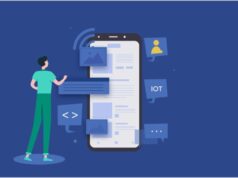Specifically, an hour of in-bed screen time increased insomnia risk by nearly 60 percent, and lowered sleep duration by about a half hour.
“We were particularly interested in whether social media — because of its interactive and potentially emotionally stimulating nature — would have a stronger association with poor sleep outcomes than other screen activities,” says the study author Børge Sivertsen, PhD, a senior researcher at the Norwegian Institute of Public Health in Bergen.
“Surprisingly, we found that it’s the overall screen time in bed that matters most, not the type of activity,” Dr. Sivertsen says.
Sleep Troubles Grow as Screen Time Increases
Sivertsen and his colleagues analyzed survey responses from more than 45,000 adults ages 18 to 28.
Participants were asked whether they used screens after going to bed, for how long, and for how many nights per week. Then they identified their common screen activities: watching shows or movies, gaming, social media, surfing the internet, listening to audio such as podcasts, or reading.
The survey also asked when participants typically went to bed, when they got up in the morning, and how long it typically took them to fall asleep. Participants indicated how often they had trouble falling or staying asleep, how often they felt sleepy during the day, and how long their sleep problems persisted.
Insomnia was defined as having trouble sleeping and experiencing daytime sleepiness issues at least three times a week for at least three months.
The results showed that a one-hour increase in screen time in bed was linked to a 59 percent greater risk of insomnia and 24 fewer minutes of total sleep on average.
Sivertsen stresses that insomnia symptoms and reduced sleep duration were associated with an increased amount of screen use.
He adds that the findings are limited in that they are observational, relying on preexisting self-reported data from a narrow population (young adult Norwegians) that did not include scientific sleep measurements.
Why You Should Avoid Your Phone Before Bed
“Screen time at bedtime activates the mind,” says Vishesh Kapur, MD, MPH, the director of sleep medicine at the University of Washington in Seattle, who was not involved in the study. “If the individual is consuming content that is very interesting, they may delay going to sleep, or if the content is disturbing or anxiety-inducing, this could make it hard to fall asleep.”
Tips to Break the Bedtime Screen Habit
Dr. Verma, who was not involved in the research, offers the following tips to prevent wakeful effects from smartphones and get better sleep:
- Avoid screens 30 to 60 minutes before bedtime.
- If you must use screens, keep brightness to a minimum.
- Use built-in phone features like Night Shift, which reduces blue light, and Do Not Disturb, which silences notifications, calls, and alerts.
- Replace screen time with a relaxing bedtime ritual such as reading a physical book or gentle stretching.
- Consider an old-fashioned alarm clock instead of setting an alarm on your phone to reduce the temptation to go online.
“Our study shows that even small reductions [in screen time] could improve sleep quality and duration,” says Sivertsen. “It’s not about quitting screens entirely — it’s about being mindful of how and when we use them, especially at night.”







